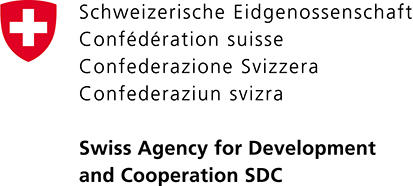|
 At the end of the fourth and final day of the joint session of the FfD3 and post-2015 development agenda negotiating processes, Post-2015 Co-Facilitator Donoghue said the joint meeting had been a very valuable exercise and had improved the scope for agreement on many challenges related to the means of implementation (MOI), the Global Partnership and the follow-up and review of the post-2015 development agenda. He noted general agreement that: the success of the agenda will depend on political will on policies, institutions, commitments and the Global Partnership; the two processes are synergetic and complementary, not subsidiary; the FfD3 outcome must match the universal, ambitious and transformational SDGs and targets; and the report of the High-Level Panel on a Technology Bank for Least Developed Countries (LDCs) will play an important role in the discussions on the technology facilitation mechanism (TFM).
At the end of the fourth and final day of the joint session of the FfD3 and post-2015 development agenda negotiating processes, Post-2015 Co-Facilitator Donoghue said the joint meeting had been a very valuable exercise and had improved the scope for agreement on many challenges related to the means of implementation (MOI), the Global Partnership and the follow-up and review of the post-2015 development agenda. He noted general agreement that: the success of the agenda will depend on political will on policies, institutions, commitments and the Global Partnership; the two processes are synergetic and complementary, not subsidiary; the FfD3 outcome must match the universal, ambitious and transformational SDGs and targets; and the report of the High-Level Panel on a Technology Bank for Least Developed Countries (LDCs) will play an important role in the discussions on the technology facilitation mechanism (TFM).
Donoghue observed that some Member States wish to leave room for further negotiations on MOI after FfD3, while others oppose because that would diminish the level of ambition of FfD3. On the TFM, he said many delegations expressed their support for the creation of a TFM, while others recommended finding ways to maximize the use of existing initiatives. The suggestions brought up during the meeting included: a Global Forum on Innovation for Development; a Global Fund for Technology; creating multi-stakeholder partnerships; and the Secretary-General’s proposal of an online platform mapping existing initiatives. However, he noted, divergences remain and the TFM will remain a joint endeavor between the post-2015 and FfD3 processes, adding that the conversations on the issue within the FfD3 track, which will take place during FfD3’s third drafting session, from 15-19 June 2015, will be co-chaired by the four Co-Facilitators.
With regard to the May session of the intergovernmental negotiations on the post-2015 development agenda, focused on follow-up and review, he announced that the Co-Facilitators will soon circulate a proposed program and a background paper, which will be based on the membership’s inputs received during the January stocktaking session and the discussions on 24 April 2015. He added that, during the May session, Member States will also receive an update on the work undertaken by the UN Statistical Division (UNSD) on indicators, and that a zero draft of the post-2015 development agenda will be released shortly after the session. He also noted that informal informals at the expert level will be held during the next weeks.
FfD3 Co-Facilitator Talbot stressed the need to identify more clearly what the ambitious components of the FfD3 outcome will be and said that a revised zero draft of the FfD3 outcome, based on the inputs received during the drafting session that took place on 13-17 April 2015, will be circulated in the beginning of May. He announced that the FfD3 Co-Facilitators secured additional time for negotiations, which will take place from: 11-15 May 2015; 26-29 May 2015; and 1-5 June 2015 in New York, US. The meeting was adjourned at 4:39 pm.
|
|















